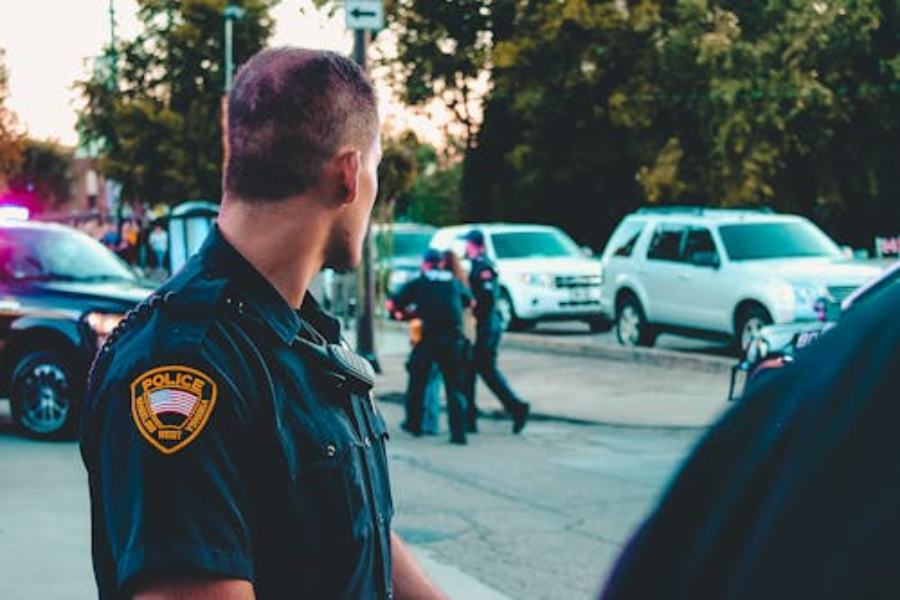
Security and law enforcement both play critical roles in protecting people and property, but their functions are distinct. Law enforcement officers, such as police, are granted legal authority by the government to enforce laws, conduct investigations, make arrests, and respond to crimes. Security personnel, on the other hand, are generally hired by private businesses or individuals to ensure safety, prevent theft, and deter criminal activity within specific environments.
While their goals often overlap, the differences between security and law enforcement are significant. These differences stem from varying legal frameworks, training, and responsibilities. Understanding these distinctions is essential for recognizing how both security and law enforcement contribute to public safety in complementary ways. In this article, we’ll explore the relationship between security personnel and law enforcement officers, highlighting their key differences and how they collaborate to maintain safety and security.
Is security considered law enforcement?
Security personnel are not considered law enforcement because they lack the authority to make arrests, conduct criminal investigations, or enforce laws. Law enforcement officers, such as police officers, are granted specific powers by the government, including making arrests and investigating crimes. Security officers, while playing a crucial role in maintaining safety and preventing crime, are typically hired by private companies or property owners and focus primarily on protecting private assets and individuals from harm.
What is Security and Law Enforcement?
Security and law enforcement are two critical components in ensuring safety, yet they serve distinct purposes. Security refers to the protection of private property, businesses, or individuals from harm, theft, or vandalism. Security personnel are often employed by private entities, such as companies, to monitor access points, patrol premises, and prevent criminal activities. In contrast, law enforcement, represented by police officers and other governmental agencies, has the legal power to enforce laws, investigate crimes, and uphold justice within a jurisdiction.
While security officers play an essential role in preventing crime, they do not have the legal authority that law enforcement officers possess. Law enforcement, as the name suggests, is responsible for enforcing the law, which includes making arrests, conducting investigations, and responding to criminal activities.
Security officers, although often sharing similar responsibilities, such as maintaining a visible presence and deterring crime, typically do not engage in activities like criminal investigations or arrests. They generally focus on the prevention of crime through surveillance, monitoring, and responding to incidents that occur on private property.
Significant Differences Between Security and Law Enforcement
Security personnel and law enforcement officers both play crucial roles in maintaining safety, but their functions and responsibilities differ significantly. Understanding these differences is key to recognizing how each contributes to public security.
Roles and Responsibilities
Security personnel primarily focus on monitoring and patrolling private properties. They work to deter criminal activity through their presence and vigilance, preventing unauthorized access to facilities. Security officers typically respond to minor incidents or emergencies, such as medical issues or disputes. Their role is to maintain a safe environment, particularly in private settings, and to report any significant incidents to law enforcement.
On the other hand, law enforcement officers have broader responsibilities. They are tasked with enforcing laws and ordinances, investigating criminal activities, and collecting evidence. Law enforcement officers have the authority to make arrests and detain suspects, as well as respond to emergency calls related to crimes or disturbances. Their role is to uphold public safety and ensure the enforcement of the law in society.
Legal Authority
Security personnel have limited authority. They cannot make arrests or carry out legal actions beyond detaining suspects until law enforcement arrives. Their actions are governed by the guidelines set by their employer, typically private businesses or individuals.
In contrast, law enforcement officers possess full legal authority granted by the government to arrest individuals, conduct investigations, and enforce laws. They operate under the legal framework provided by local, state, or federal regulations.
Training and Education
Security personnel undergo basic training in security protocols, surveillance, and emergency response. However, their training can vary significantly depending on the employer’s needs and location.
Law enforcement officers, in contrast, undergo extensive training in criminal law, investigations, arrest procedures, and the use of force. They are required to complete formal police academies and ongoing professional development to stay updated on best practices and legal standards.
How Do Security and Law Enforcement Work Together?
While security and law enforcement have separate responsibilities, they often work hand-in-hand to ensure safety. Security personnel typically handle routine surveillance, monitor CCTV systems, and respond to non-criminal incidents. When an event escalates or involves criminal activity, security can call law enforcement officers to take over. This collaboration ensures that private properties and public spaces are safe from both minor disruptions and major criminal threats.
Key Points of Collaboration:
- Information Sharing: Security teams often pass on critical information to law enforcement to help prevent or solve crimes.
- Emergency Response: In case of an emergency, security teams often assist law enforcement by providing access to private areas or securing a crime scene.
Why is the Role of Security Essential in Modern Society?
The role of security personnel has become increasingly significant in today’s society, especially with the growing number of public and private spaces. Security guards are now an essential part of maintaining safety in various environments, including office buildings, shopping centers, hospitals, and entertainment venues. They serve as the first line of defense, preventing security threats before law enforcement is involved. Their presence ensures that public events and private spaces remain secure for both visitors and employees. Security professionals also play a crucial role in emergency response, quickly identifying potential risks and coordinating with law enforcement as necessary. Their duties are not just reactive, but proactive, preventing crimes before they happen through vigilance and monitoring. Adjectives to describe their contributions include “vital,” “proactive,” and “indispensable,” underscoring the importance of security guards in preserving a safe environment. These professionals play a vital role in maintaining peace and order, thereby contributing to a sense of safety in communities.
How Does the Legal Framework Affect Security vs. Law Enforcement?
The legal framework plays a crucial role in defining the distinctions between security personnel and law enforcement officers, shaping their actions and responsibilities. Laws and regulations determine the scope of authority and the specific actions each group is allowed to take in various situations. Security officers, for example, are generally limited to protecting private property, deterring crime, and addressing minor incidents. Their legal authority is typically restricted to the premises they are hired to secure, and they must act within the guidelines set by their employer. Law enforcement, on the other hand, operates within a broader legal framework established by local, state, or federal laws, giving them the authority to enforce laws, conduct investigations, make arrests, and respond to criminal activities. Understanding these legal differences is vital for both professionals and the public. It helps clarify expectations and ensures that security personnel and law enforcement can collaborate effectively, minimizing confusion and ensuring proper response to incidents.
Conclusion
Security personnel play a crucial role in maintaining safety, but are not considered law enforcement officers—the primary difference between the two lies in legal authority. Security officers focus on prevention, protecting private property, and managing minor incidents. Still, they do not have the authority to enforce laws or make arrests, which is the responsibility of law enforcement officers. While both security and law enforcement roles complement each other, law enforcement handles criminal enforcement and legal matters. Understanding these distinctions helps clarify the essential functions of both security personnel and law enforcement, highlighting their collaborative efforts in maintaining community safety and security.
FAQ’s
What is the main difference between security and law enforcement?
Security officers focus on preventing crime and protecting private property, whereas law enforcement officers have the legal authority to enforce laws, make arrests, and handle criminal investigations. Both roles contribute to safety, but law enforcement has broader legal powers.
Can security guards make arrests?
No, security officers do not have the authority to make arrests. They are allowed to detain individuals temporarily until law enforcement arrives, but lack the authority to arrest or enforce legal consequences formally.
Do security officers have the same training as law enforcement officers?
No, security officers typically receive shorter, specialized training in surveillance and emergency response. Law enforcement officers undergo extensive training in criminal law, investigations, and handling arrests.
How do security and law enforcement work together?
Security officers manage surveillance and minor incidents, while law enforcement intervenes for serious crimes or legal matters. Their collaboration ensures a comprehensive approach to public safety.
Why is it important to understand the distinction between security and law enforcement?
Knowing the difference ensures that proper expectations are set and avoids confusion about their roles. This understanding helps both groups work efficiently to maintain safety within their legal boundaries.
